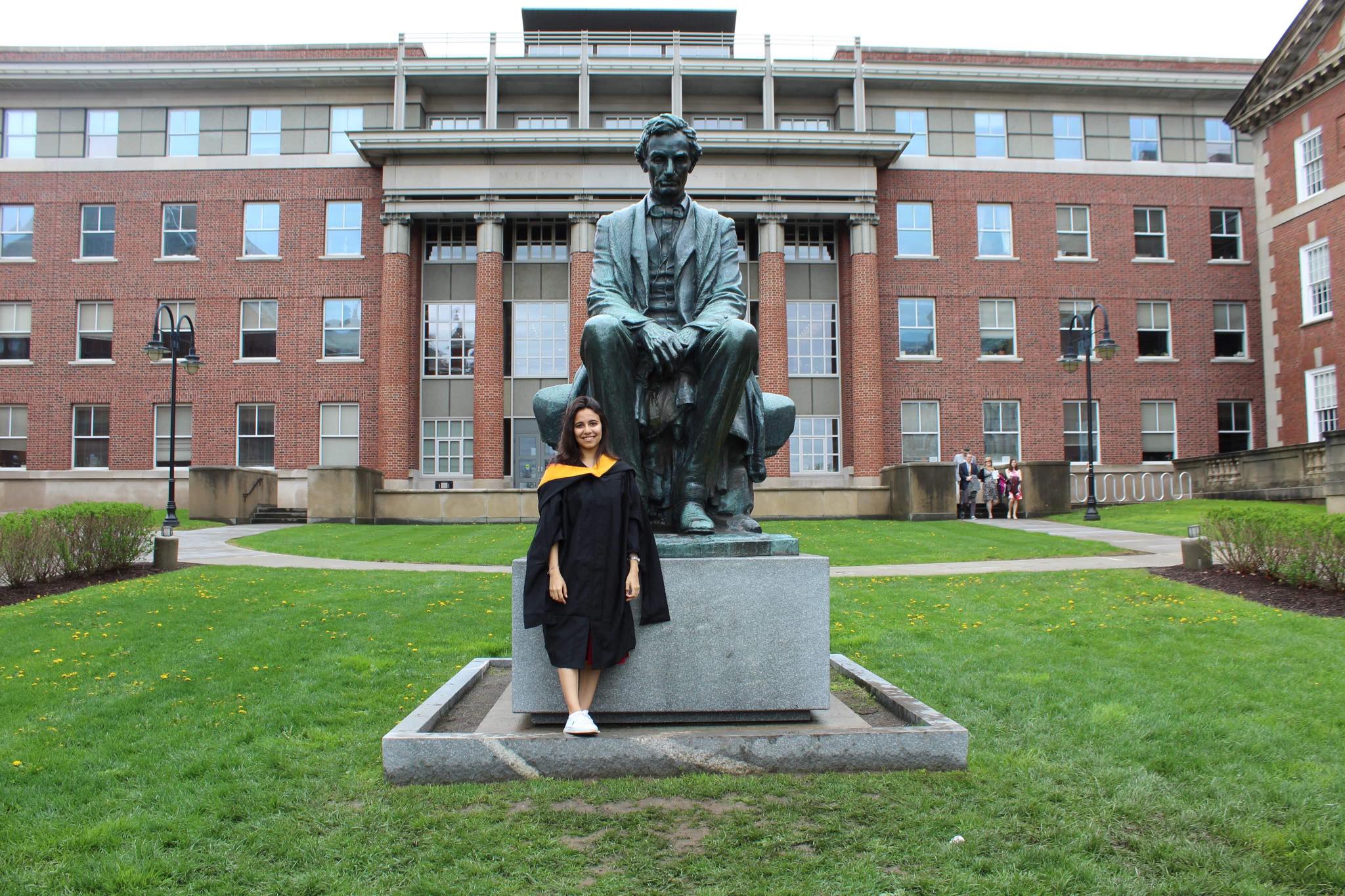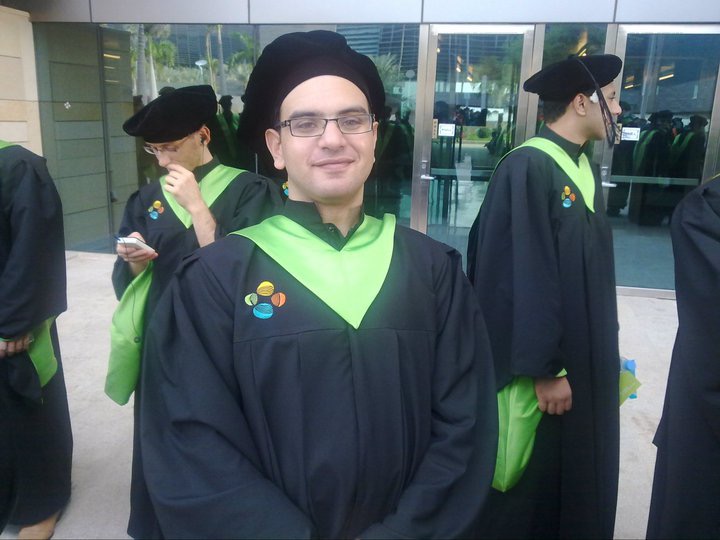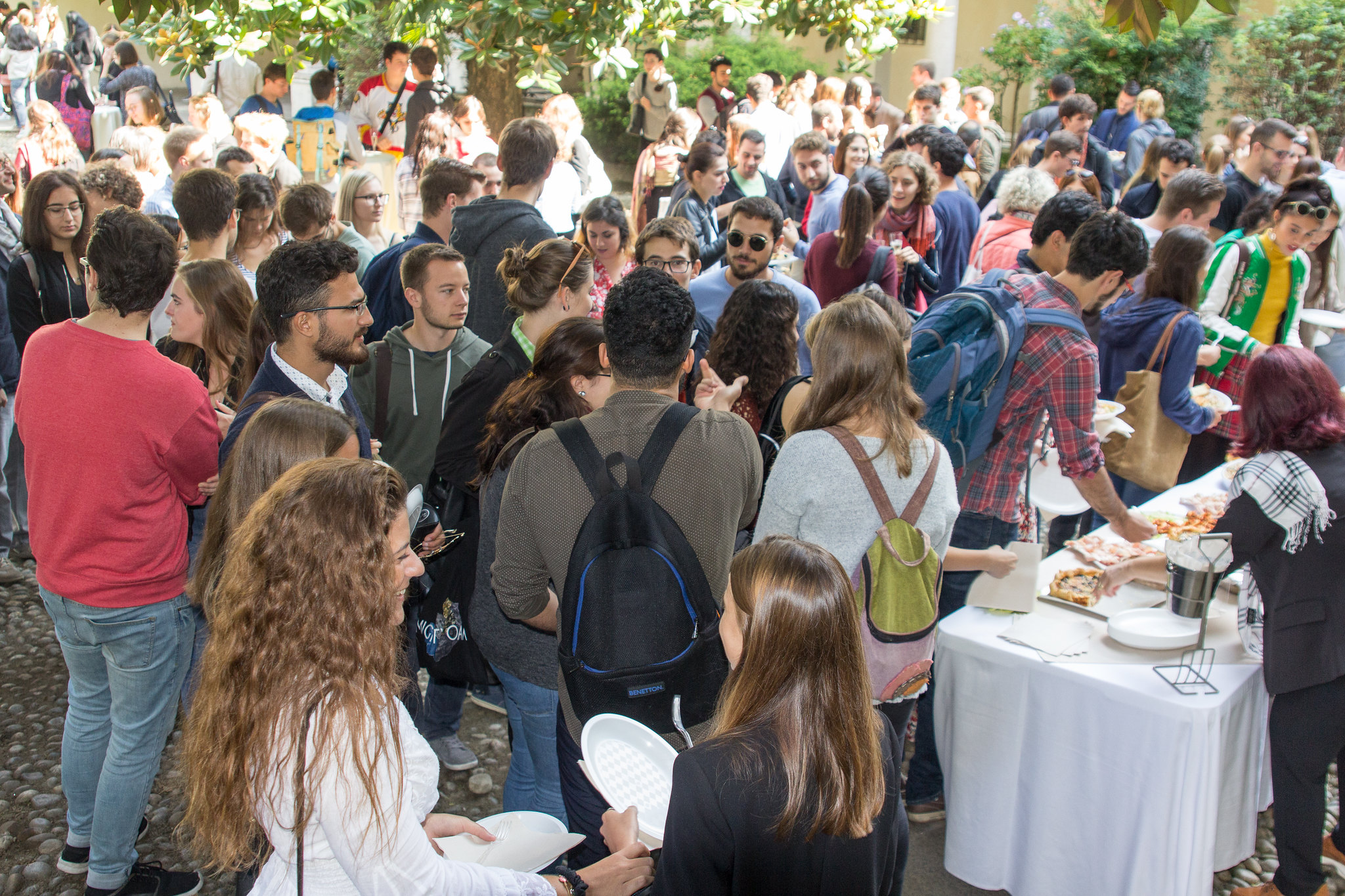“I was 22, alone among my peers, and I was expected to lead a productive life and study for grad school with zero oversight. I lived in my own apartment, had to feed myself, do the laundry, keep the apartment clean, and basically just learn how to be an adult. Now, was I consistently successful at all of those things? Absolutely not. I almost set the apartment on fire while cooking one night. But I can tell you that everything I learned during that time has made me who I am today.”
This description of an experience as an international student comes from Mohamed Mazloum, an Egyptian who left home to study in Saudi Arabia.
Studying abroad is not a walk in the park, and it is certainly not for everyone. Uprooting your life for the sake of a degree is an expensive and exhausting process that can be isolating and emotionally draining.
And yet, many Egyptians who get the chance to pursue academic opportunities outside of the country come back only to rave about their stints abroad for months and maybe even years after their return.
Experiences differ, and in spite of the challenge, there are still many reasons as to why a student may decide to take the plunge and travel abroad: perhaps they received a prestigious grant for their academic merit or dream to pursue a specialized degree that is not offered at a university in Egypt. Perhaps they simply want to have a new experience away from their comfort zone. There is no single motivation, and the advice to go with it cannot be one-size-fits-all.
Nevertheless, Egyptian Streets tried to explore this roller coaster of an experience by asking a number of Egyptians who studied abroad why they think someone – if they managed to snag a scholarship or are fortunate enough to be able to swing it on their own – should try to experience it for themselves.
From their answers, here are five reasons (apart from the obvious academic ambitions) to study abroad and fives pieces of advice they thought would be particularly valuable to someone on the cusp of making that big decision.
1. MEETING NEW PEOPLE
Unless a group of friends collectively decides to move its comfort zone to a different geographical location, anyone studying abroad will suddenly be faced with the challenge (or opportunity) of meeting brand new people. If they are travelling to go to a particular university, chances are it attracts students from other parts of the world, so they will likely end up meeting people from places they may never even have heard of.
The former students that spoke to Egyptian Streets believe that this exposure will allow a student to widen their circle, create networks in places they never thought they would, and learn first-hand about cultures that once seemed distant and out of reach.
“Yes, social media and the internet has made it easier to experience the world and know more than just your own backyard,” said Marwan Imam, who spent a year studying in the United States.
“But honestly living there and interacting with the people is a whole other thing. You don’t get the nuances of culture and the true differences between you and others unless you truly live with the people and organically arrive at that sort of cultural exchange,” he continued.
2. Discovering A Different Side to Yourself
Most Egyptians who study abroad experience a stark contrast when they move, as they go from living in their parents’ house to living entirely on their own. This is a shock, to be sure, but it also allows many people to discover sides of themselves they never had the chance to encounter before. The rhythm that is intentionally or unintentionally imposed upon them simply due to the fact that they are sharing a space with their family, suddenly disappears.
Maybe they will start developing new habits or learn of a new food they would like to incorporate more regularly into their diet. There are different ways in which this can occur, but the time spent alone allows a student to tap into parts of themselves they may not have otherwise had the chance to explore.
“You get to see yourself without the clutter. With just yourself, your choices, your opinion. In a sense it gives you the space to dismantle, if you choose, the notions and beliefs you thought were yours or were ‘right’ and you get to really meet yourself,” Nour El Beblawy, who spent a semester in Spain told Egyptian Streets.
In a similar vein, Mahmoud Shehabeldin, who completed his undergraduate degree in the United Kingdom, believes that the freedom that he had as a international student in London allowed him to understand his own self-imposed boundaries once they were challenged by the different lifestyles around him.
Another interviewee argues that the space, distance, and solitude can allow you the space to find your passion. And she has quite a bit to show for that argument.
“I learned how to cook, I loved cooking, and I loved how homey my place was,” Laila Sedky, who spent time studying in the United States and Canada, raved.
“And I founded NOLA Cupcakes as soon as I came back.”
3. Appreciating Your Own Culture
At universities that attract international students, different cultures inevitably meet and the close interaction often throws them into sharp contrast. Egyptians studying abroad may find themselves in the unfamiliar position of having to explain why they do the things they do.
Especially for those who spent their whole lives in Egypt prior to going on this adventure, explaining their culture has probably never been necessary before, so they may discover that many things that were givens to them, are brand new to the people they encounter.
The students that spoke to Egyptian Streets said that being in this position allows you to understand your culture – and your relationship with your culture – better than if you had simply continued to take those things as a given.
“Egypt is a Muslim majority country where it can be easy to separate yourself from people who are culturally different from you and remain in your comfort zone,” Shehabeldin explained.
“Being in the minority when you study abroad can show you how unique your culture is, because you have to explain it to others,” he said.
Shorouk Mounir, who told Egyptian Streets that one fool proof way to see Egypt in a new and better light while staying abroad is to explore the details and depths of the culture you are visiting. This will lay bare the differences and help you understand where you are coming from with greater nuance.
4. Learning to be Responsible
The fact that most Egyptians continue to live at their parent’s home until they marry often means that they do not shoulder many of the responsibilities associated with adulthood until after their studies are behind them.
But, thrown in at the deep end abroad, many Egyptians find themselves faced with the prospect of being fully responsible of managing their time, household, and money. This is a pitfall for many, particularly those from more affluent and privileged backgrounds.

Like children in sweet shops, many who study abroad take to the newfound freedom and independence and get carried away reveling in them. However, most learn to reign in their indulgent habits before it is too late, gaining skills that come in handy for a lifetime.
But these responsibilities are varied are not only about cooking, cleaning, and watching finances, said Assem Heiba, who spent a semester studying in Poland.
“When you study abroad, you take on many new responsibilities all at once. Some of these responsibilities are mundane, like keeping your residence in order, others are challenging, like being on top of your studies and getting good grades, and some are long-term and difficult to measure, like being a good representative of your identity,” specified Heiba.
5. Broadening horizons
As much as this phrase may sound like a cliché, this aspect of studying abroad was key to the interviewees.
“I was not aware of how socialization makes us perceive life from a narrow perspective in which it makes it easier to differentiate between people who are different than me; thus, easier to discriminate against them,” Nesma Elsehmawy, who completed her postgraduate studies in the United States, told Egyptian Streets.
“Traveling and studying abroad helped me widen my horizons into perceiving the world as much bigger than the bubble that I come from in Egypt.”

This is a process that takes personal effort and can entail a variety of different aspects. In countries where the language is unfamiliar, the interviewees advise to learn the language. They also recommend taking a variety of classes and engaging in unfamiliar activities that are unavailable at home.
Tip 1: Prepare to be uncomfortable
“Embrace all the challenges, take all the risks,” recommended Marwan Hussein, who spent a stint studying in the Netherlands.
Being in a completely new environment with entirely new rules and expectations is not easy and unfamiliar and new experiences are often not glamorous or photogenic. New rules and expectations emerge, and and new coping mechanisms develop with them.
To many tasks as simple and necessary as making friends can be a challenge, as they require the ability to communicate across cultures, and to step out of the safety of solitude.
But Dona Emam, who spent stints in Spain and France, said that even if isolation appears to be an easy option, it should be resisted.
“We all need people around us,” Emam told Egyptian Streets “But sometimes that takes some time and effort.”
Tip 2: Branch Out
Often, when abroad, international students flock together with their compatriots, in the hope that this will provide comfort in an unfamiliar environment. Many of the former students Egyptian Streets spoke to for this article vehemently advised against this.
“My advice would definitely be not to stick with Egyptians as we tend to stay in the comfort zone with people we know and make us feel home,” said Youssef Ossama, who studied in Germany for a semester.
“Meet new people and travel as much as you can, learn about the culture. We live in a bubble where we’re not exposed at all to different people with different beliefs and opinions,” Ossama said.
Tip 3: Have a good sense of who you are
Rowan Hanno told Egyptian Streets that she believes “we should go abroad to really get to know the world but also get to know how we fit in it.”

But while as Soha El Sokkary, who studied in the US and in Germany says, travelling alone gives a person a new sense and deeper understanding of who they truly are, there is also a need to explore that prior to travelling and while you are there.
“You do not have to replace your identity with a new one in order to fit in, but be smart enough to acquire only what can add to you,” says Nadine Dib.
Tip 4: Don’t forget, you’re there to study
The interviewees agreed that one of the biggest mistakes an international student can make is to neglect the fact that the primary reason they are abroad is, in fact, to study.
Mohanad El Sawy for instance, who went to the United Kingdom for his studies, highlighted the importance of the academic takeaways of the experience, as he is among those who travelled to achieve a degree in Innovation and Technology Management, a field that is not taught in Egypt.

The diversions, flexibility, and autonomy that come with studying abroad can sometimes lead to an imbalance in priorities, but the interviewees strongly advise against falling into that trap.
“It’s entirely possible to maintain strong academic performance while having a lot of fun by traveling and meeting new people. In fact, this balancing act is one of the most important things you can learn while studying abroad,” says Heiba.
Mahmoud Salem, who spent five years studying in Boston particularly advises Egyptians who study abroad to take social sciences classes.
Tip 5: Make the most out of it
Even if the decision to travel to study abroad comes out of complete conviction, often the difficulties that come with it are inescapable. What with the academic challenge, the social isolation, and the burden of responsibility, the tip to “make the most” out of a stint abroad may not be as easy as it sounds.
“For much of my time there, I was very introverted and reclusive, often opting to go out only for classes and food, and then right back home to sit by myself. I cannot stress how wrong I was,” narrated Mazloum.
“Immerse yourself in the community. Seriously, that’s the most important thing. Don’t allow yourself to weave a secure little cocoon that you never emerge out of, because you’ll find that you’ve missed out on so much,” he advised.

Omar Auf, who spent time studying in France shared a similar sentiment:
“When you’re feeling down, homesick, or lonely, remember that you’re coming back eventually and that your time abroad is limited (if you’re coming back to Egypt after that is) so make the most out of the experience because you will miss it despite the difficulties.”








Comments (0)